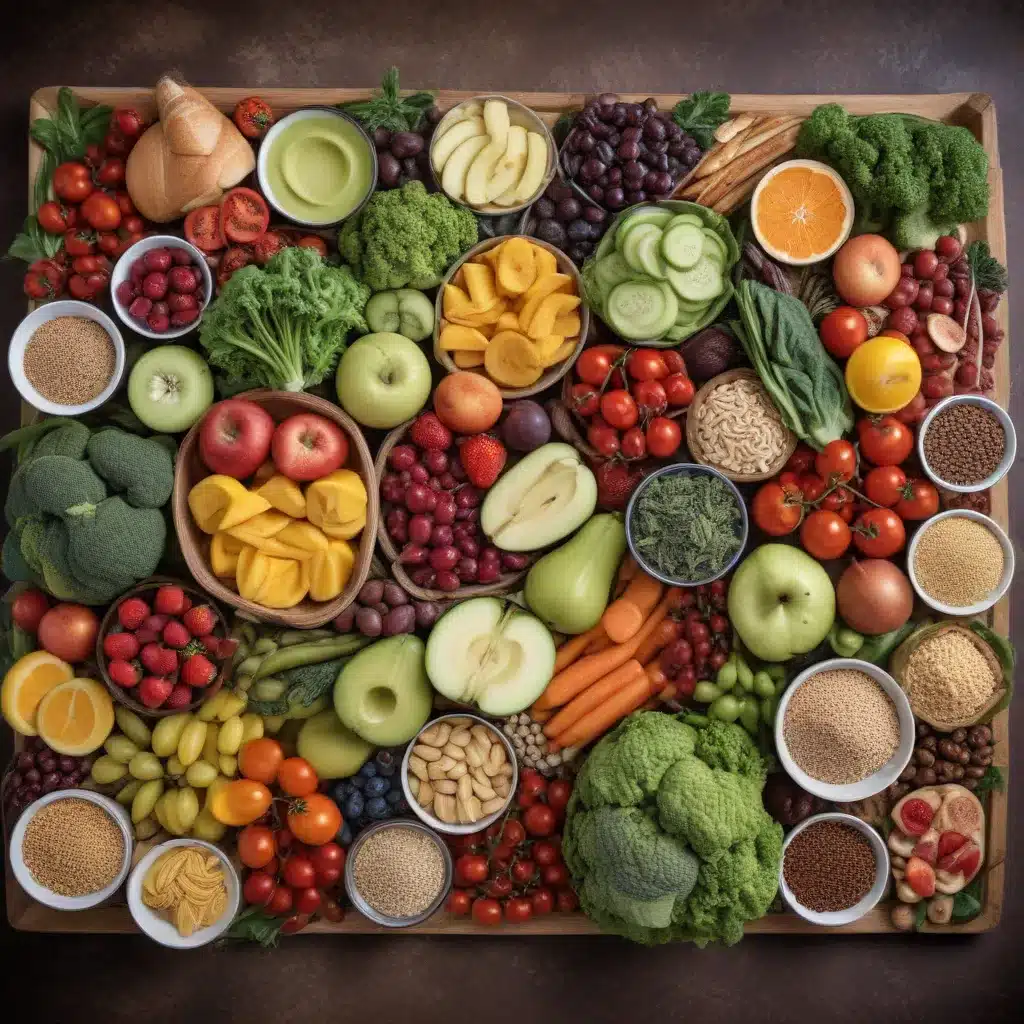
Exploring the Relationship Between Diet and Quality of Life
As seasoned culinary professionals, we understand the profound impact that dietary choices can have on an individual’s overall well-being and quality of life (QoL). While the connection between weight loss, improved health outcomes, and enhanced QoL is well-established, the independent effects of dietary interventions on QoL remain an area that requires deeper exploration.
A comprehensive review of the literature, guided by the Preferred Reporting Items for Systematic Reviews and Meta-Analyses (PRISMA) Statement, has shed light on this important but often overlooked aspect of dietary change. The findings reveal that while the majority of studies reported improvements in QoL after participating in behavioral weight loss interventions, the research lacks definitive evidence to determine whether these changes were solely a result of weight loss or independent of it.
Understanding the Multifaceted Impact of Diet on Quality of Life
The conceptual model proposed in the review (Figure 1) highlights the various life domains that can be influenced by dietary changes, including social, economic, and personal factors, in addition to physical health and weight-related outcomes. This underscores the importance of considering how broad dietary recommendations might affect overall QoL in both positive and negative ways, beyond just weight loss and health improvements.
“It is important to consider how making broad dietary recommendations for all individuals might affect overall QoL in both positive and negative directions when considering factors other than weight loss and health improvement.”
Assessing Quality of Life Outcomes in Dietary Interventions
The review examined 24 studies that reported QoL as an outcome, with the majority (71%) utilizing the generic Short Form-36 (SF-36) Health Survey to measure QoL. Other disease-specific instruments, such as the Impact of Weight on Quality of Life-Lite and the Functional Assessment of Cancer Therapy-General, were also employed in select studies.
Across the included studies, a wide range of dietary interventions were recommended, from calorie restriction and fat reduction to low-carbohydrate and “healthy diet” approaches. While the majority of these dietary strategies reported within-group improvements in QoL, the review highlighted a lack of evidence to definitively determine whether these changes were the result of weight loss or independent of it.
Identifying Gaps and Exploring Future Directions
The systematic review revealed several important methodological limitations in the current literature, including a need for more robust study designs, unbiased end-point assessments, and appropriate sample size calculations. These shortcomings suggest that greater attention is required to improve the quality and reporting of studies assessing the impact of dietary interventions on QoL.
Furthermore, the review underscores the need for the development of nutrition-specific QoL assessment tools. The lack of such instruments has hindered researchers’ ability to accurately capture the full spectrum of factors that may influence an individual’s QoL in the context of dietary changes.
“The effect of implementing recommended dietary changes for weight loss–seeking individuals may affect QoL through a range of domains other than weight loss or health improvement. The lack of evidence needed to fully understand the impact of dietary interventions on QoL has research and clinical implications that must be considered and addressed.”
Harnessing the Power of Tailored Nutritional Interventions
While the current evidence base may be limited, research in the field of colorectal cancer (CRC) management offers valuable insights into the potential benefits of integrating tailored nutritional support into treatment plans. A comprehensive review published in the journal Medicina explored the impact of preoperative and postoperative nutritional interventions on treatment outcomes and QoL in CRC patients.
The findings suggest that customized nutritional interventions can significantly improve clinical outcomes, enhance QoL, and reduce treatment-related complications in CRC patients, particularly by attenuating inflammation. Moreover, the review highlights the cost-effectiveness of these nutritional strategies and identifies key methods to enhance patient compliance with dietary recommendations.
“Integrating nutritional support into CRC treatment plans is crucial for optimizing clinical management and improving patient well-being.”
Embracing a Holistic Approach to Dietary Change
As culinary professionals, we recognize that dietary interventions have the potential to impact QoL in myriad ways, both positively and negatively. By adopting a comprehensive approach that considers the broader implications of dietary changes, we can better support individuals in achieving sustainable, health-promoting dietary habits.
This may involve exploring the social, economic, and personal factors that influence an individual’s relationship with food, as well as developing tailored nutritional strategies that optimize QoL, as demonstrated in the CRC management context.
By staying at the forefront of research and continuously expanding our understanding of the multifaceted impact of diet on QoL, we can empower our readers to make informed choices that enhance their overall well-being and enrich their culinary experiences.
Conclusion
The systematic review and subsequent insights from the CRC management literature highlight the critical need to consider the broader implications of dietary interventions on QoL, beyond just weight loss and health outcomes. As culinary professionals, we have a responsibility to guide our readers towards sustainable dietary changes that prioritize their overall well-being and quality of life.
By developing nutrition-specific QoL assessment tools, leveraging robust research methodologies, and adopting a holistic approach to dietary recommendations, we can help bridge the gap in our understanding of the complex relationship between diet and quality of life. This comprehensive approach will not only lead to more successful and sustainable dietary changes but also enhance the overall culinary experience for our readers.


